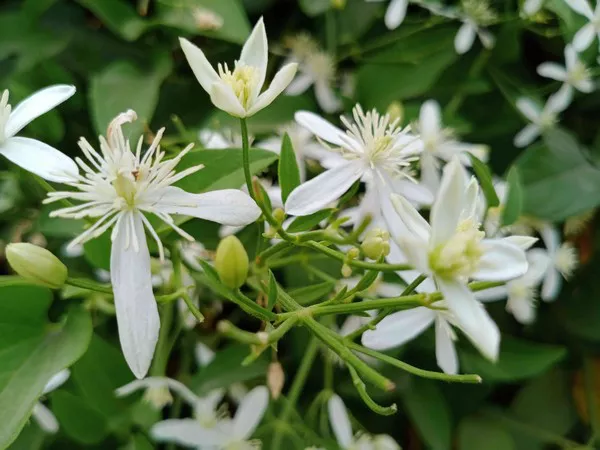In recent years, the focus on healthy eating and natural remedies has driven many to explore the world of plants for their nutritional and medicinal benefits. Plants, with their rich history in traditional medicine and modern health science, provide a wealth of benefits that can enhance overall well-being. This article delves into the top 10 healthiest plants in the world, exploring their unique properties and the myriad ways they contribute to human health.
Top 10 Healthiest Plants in the World
1. Moringa Oleifera
Nutrient Powerhouse
Moringa oleifera, often referred to as the “Miracle Tree,” is renowned for its exceptional nutrient profile. Native to India, this plant’s leaves, seeds, and pods are packed with vitamins, minerals, and antioxidants. Moringa leaves are especially rich in vitamin C, vitamin A, calcium, potassium, and protein. The high concentration of antioxidants, such as quercetin and chlorogenic acid, helps in combating oxidative stress and reducing inflammation.
Health Benefits
Regular consumption of moringa can improve overall energy levels, support the immune system, and enhance skin health. Its anti-inflammatory properties are beneficial for conditions like arthritis, and its ability to lower blood sugar levels makes it a valuable plant for managing diabetes.
2. Turmeric (Curcuma longa)
Golden Spice with Medicinal Properties
Turmeric, a bright yellow spice derived from the root of the Curcuma longa plant, has been used for centuries in traditional medicine. The active compound in turmeric, curcumin, is a powerful anti-inflammatory and antioxidant.
Health Benefits
Curcumin has been extensively studied for its role in reducing inflammation and pain, particularly in conditions such as arthritis. It also promotes heart health by improving endothelial function and reducing the risk of heart disease. Additionally, curcumin has potential cancer-fighting properties and can aid in improving brain function and lowering the risk of neurodegenerative diseases.
3. Ginger (Zingiber officinale)
Versatile Root with Healing Powers
Ginger is another powerful root known for its medicinal properties. Rich in bioactive compounds like gingerol, it offers numerous health benefits.
Health Benefits
Ginger is widely recognized for its ability to alleviate nausea and vomiting, making it particularly useful for morning sickness during pregnancy and chemotherapy-induced nausea. Its anti-inflammatory and antioxidant properties help reduce oxidative stress and inflammation, benefiting those with osteoarthritis. Ginger also supports digestive health and can help reduce symptoms of indigestion and bloating.
See Also: Top 10 Weirdest Plants in the World
4. Garlic (Allium sativum)
Natural Antibiotic
Garlic is well-known for its robust flavor and numerous health benefits. Allicin, a compound found in garlic, is responsible for many of its medicinal properties.
Health Benefits
Garlic has potent antibacterial, antiviral, and antifungal properties, making it an excellent natural antibiotic. Regular consumption of garlic can help lower blood pressure, reduce cholesterol levels, and support heart health. It also boosts the immune system, helping the body to fight off infections more effectively.
5. Aloe Vera
Soothing and Healing Plant
Aloe vera is a succulent plant known for its soothing and healing properties. The gel extracted from its leaves is rich in vitamins, minerals, amino acids, and antioxidants.
Health Benefits
Aloe vera is commonly used to treat skin conditions such as burns, wounds, and eczema due to its soothing and anti-inflammatory effects. It also aids in digestive health, helping to soothe and heal the lining of the digestive tract. Aloe vera juice can help alleviate constipation and improve overall gut health.
6. Spinach (Spinacia oleracea)
Nutrient-Dense Leafy Green
Spinach is a leafy green vegetable that is incredibly nutrient-dense. It is packed with vitamins, minerals, and antioxidants, making it one of the healthiest plants available.
Health Benefits
Spinach is high in vitamins A, C, and K, as well as folate, iron, and calcium. These nutrients contribute to improved eye health, reduced oxidative stress, and enhanced bone health. The antioxidants in spinach, such as lutein and zeaxanthin, are particularly beneficial for eye health, helping to prevent macular degeneration and cataracts.
7. Blueberries
Antioxidant-Rich Berries
Blueberries are small, nutrient-dense berries that are highly regarded for their high antioxidant content. They are rich in vitamins, minerals, and fiber.
Health Benefits
The antioxidants in blueberries, particularly anthocyanins, help to combat oxidative stress and inflammation, reducing the risk of chronic diseases such as heart disease and cancer. Blueberries also support brain health, improving cognitive function and memory. Their high fiber content aids in digestive health and promotes a healthy gut microbiome.
See Also: Top 10 Rare Houseplants in the World
8. Kale
Cruciferous Superfood
Kale is a cruciferous vegetable that has gained popularity as a superfood due to its impressive nutrient profile. It is rich in vitamins, minerals, and antioxidants.
Health Benefits
Kale is an excellent source of vitamins A, C, and K, as well as calcium, potassium, and magnesium. These nutrients contribute to overall health by supporting immune function, bone health, and cardiovascular health. The high levels of antioxidants, such as quercetin and kaempferol, help reduce inflammation and protect against chronic diseases.
9. Quinoa
Complete Protein Seed
Quinoa is a seed that is often referred to as a grain due to its similar culinary uses. It is one of the few plant-based foods that provides all nine essential amino acids, making it a complete protein source.
Health Benefits
Quinoa is rich in protein, fiber, and various vitamins and minerals, including magnesium, iron, and zinc. Its high protein content makes it an excellent food for vegetarians and vegans. The fiber in quinoa aids in digestive health and helps to maintain steady blood sugar levels. Additionally, its antioxidant properties help reduce inflammation and protect against chronic diseases.
10. Matcha Green Tea
Antioxidant-Rich Beverage
Matcha green tea is made from finely ground green tea leaves and is known for its high antioxidant content. It is rich in catechins, particularly epigallocatechin gallate (EGCG).
Health Benefits
Matcha green tea has numerous health benefits, including improved brain function, enhanced weight loss, and a reduced risk of chronic diseases. The high levels of EGCG help to reduce oxidative stress and inflammation, supporting heart health and reducing the risk of cancer. Matcha also provides a sustained energy boost without the jitters associated with coffee, thanks to its combination of caffeine and L-theanine.
Conclusion
Incorporating these top ten healthiest plants into your diet can significantly enhance your overall health and well-being. From nutrient-dense greens like spinach and kale to antioxidant-rich berries and spices, each plant offers unique benefits that contribute to a balanced and healthy lifestyle. Whether you consume them as part of your meals, in smoothies, or as supplements, these plants provide a natural and effective way to support your health. By embracing the power of these plants, you can harness nature’s best offerings to lead a healthier, more vibrant life.
You Might Be Interested In:





![10 Most Richest Cities in the United States [Revealed!]](https://www.validdownloads.com/wp-content/uploads/2023/12/Manjula-Pothos.webp)



















